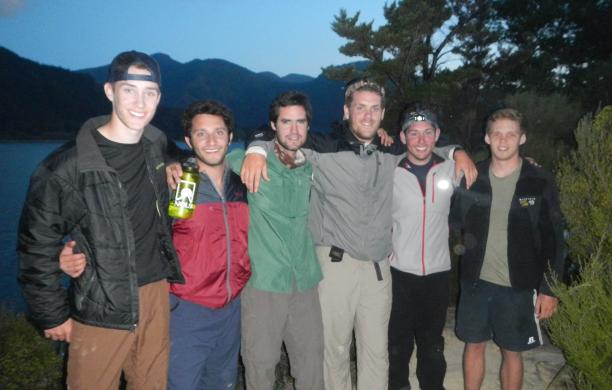It’s not the start of a bad joke. “A Rabbi, an Imam, a Priest, and a Minister Sit Down for a Chat…” is the title of a series hosted by the Office of the University Chaplain to encourage dialogue across faiths. Their March discussion challenged students to discover similarities and differences in various religious texts and traditions. In September, they focused on the topic of justice.
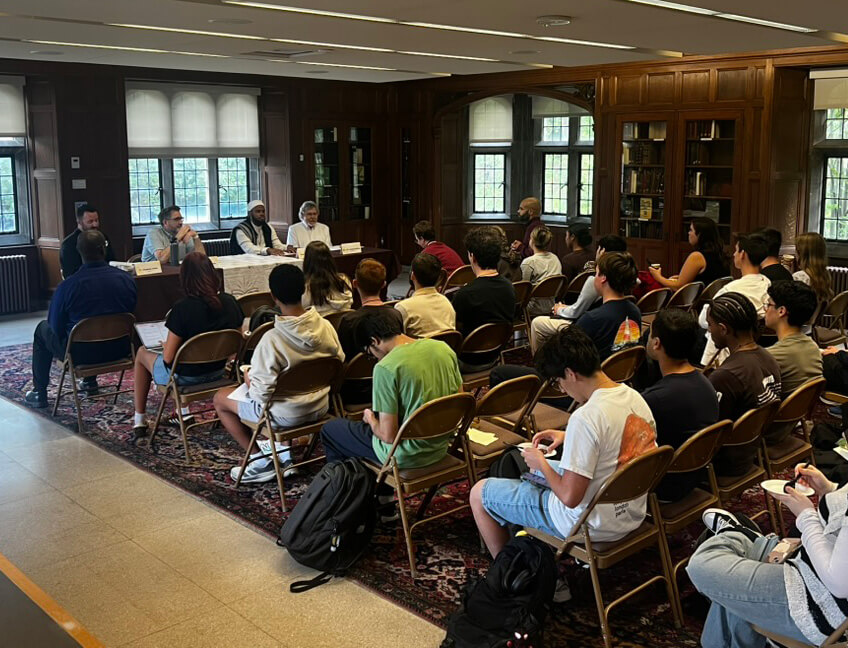
Led by University Chaplain Rev. Lloyd Steffen, the Chaplain’s Office provides interfaith support for Lehigh students, expanding its representation to serve an increasingly diverse community of faiths.
“Sprituality is an important part of our lives, and that connection to our religious communities is an important part of our identities and personal value commitments,” says Steffen, an ordained minister of the United Church of Christ. “As clergy people, we all respect that of each other and celebrate that. [...] We all understand that in an educational environment, we are here to be teachers and resources as they go through this part of their lives.”
Steffen teaches religion and ethics as a professor of religion studies and serves as the director of the Center for Spirituality and Dialogue and Lehigh’s Prison Project.
“It's an important part of our educational mission at the university,” he says. “In order to be an educated person in the world today, people need to be exposed to different religious views. Modeling respectful engagement of one tradition with another tradition helps to open up the world and helps educate people on the different value systems people live in.”
"We have to be able to talk to one another, even if we don't agree with each other,” says Rabbi Steven Nathan, endowed director of Jewish student life and associate chaplain. “It's becoming more difficult for people to do that. It's a mission of the chaplains to help them connect and talk to one another.”
Nathan continues, “There needs to be spaces on campus where we can all be ourselves, but there needs to be opportunities on campus where we can all speak to one another respectfully and come together. We can't be in our own little silos."
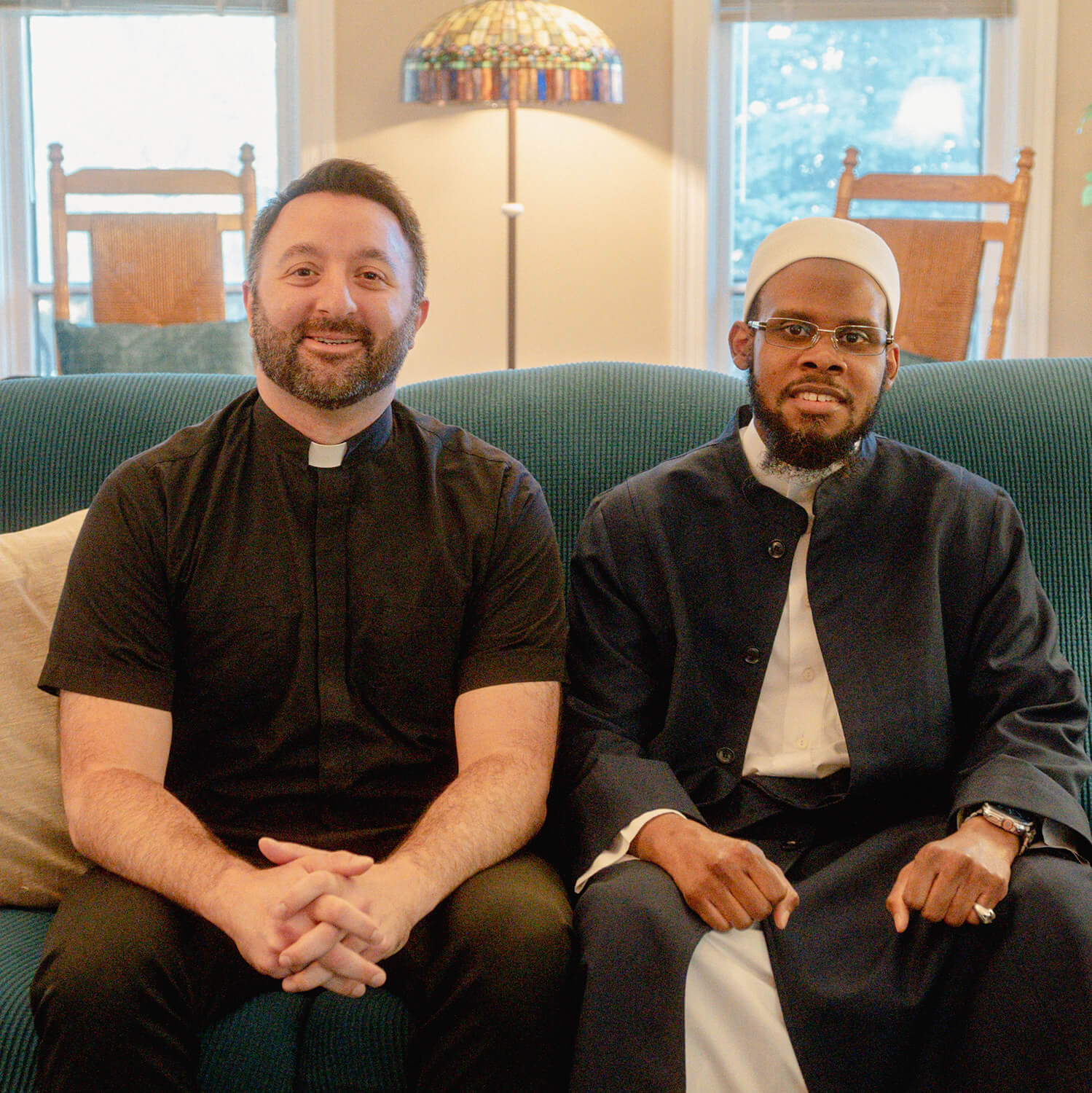
Last year, they welcomed Lehigh’s first full-time imam, Tariq Ameer, who provides spiritual guidance to the growing Muslim community and chaplaincy to anyone seeking spiritual support. He's also offering non-credit courses on Islam and has partnered with Donald Outing, vice president of equity and community, to designate the former St. Peter’s Church on Vine Street as a place for Muslim students to meet and pray. Steffen says this step has “helped create a more welcoming space for our Muslim students.”
Also celebrating one year with Lehigh is Fr. Stephan Isaac, who leads Mass for Lehigh’s large Roman Catholic community, hears confessions, and works with student leaders of the Newman Council as director of the Newman Center. While Lehigh has a long relationship with the diocese, Fr. Isaac’s involvement has energized Mass attendance and revived student leadership for the Newman Center.
Meet the New Faces
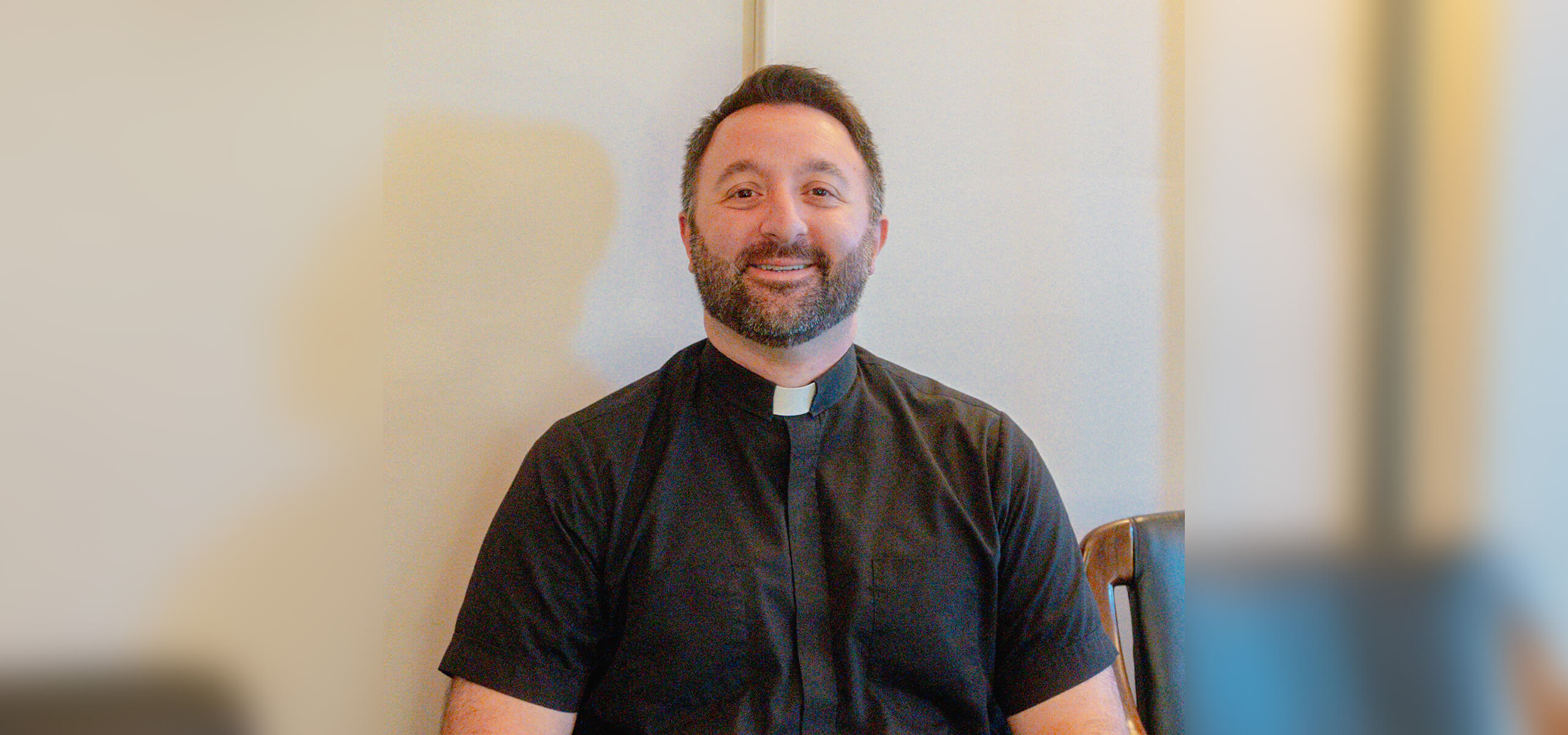
When Fr. Stephan Isaac was helping his parents lug his older sister’s laundry to and from college, he had no clue that ministry would lead him back to the same campus.
“I never would have thought [that] in a million years,” Fr. Isaac says, reflecting on those drives to and from South Mountain.
He has served at Lehigh for over a year now after previously being assigned to Allentown Central Catholic High School and Berks Catholic High School in Reading.
Fr. Isaac, who also began serving as chaplain at Bethlehem Catholic High School last year, enjoys serving college students and notes how eagerly they participate in services. “They come of their own volition. The faith of the college students is so strong and so deep.”
“The Holy Sacrifice of the Mass is the heart of our worship and spiritual life,” continues Fr. Isaac, which is why providing the sacraments to the Catholic community on campus is a central part of his role. But his ministry also extends to spiritual counsel and outreach beyond the Catholic community.
Fr. Isaac, who recently celebrated nine years as a Catholic priest, is excited to engage in dialogue and collaborate with different faith leaders. “Our campus ministry is very active and vibrant for Catholics and non-Catholics.”
The existing chaplains have offered welcoming support to Fr. Isaac. “We have a great relationship. It's been a joy getting to know [them]. I love working with them and serving our students together.”
“The Church loves and respects all people of all faiths and no faith,” says Fr. Isaac. “We believe every human person is created in the image and likeness of God, and the Church honors the dignity of every person whether Catholic or not.”
“The Catholic church honors that which is good and true in other religions,” he continues, noting that fruitful interfaith dialogue upholds the equal dignity of all students.
Mission at Lehigh
As one of Lehigh’s newest chaplains, Fr. Isaac began with a goal to reconstitute the student executive board of Lehigh’s Catholic campus ministry, noting that it needed to be reestablished after the pandemic. “We want the students to be the leaders, and students stepped up to be the face of campus ministry.”
“All these young people involved in Lehigh’s Catholic campus ministry are truly humble, virtuous people [...] They exemplify so many of the qualities that are found in Christ.” More specifically, Fr. Isaac calls out their kindness, compassion, joy, and courage as the qualities that will equip them to take on the reins of leadership in the world.
They also bring new ideas for outreach, eager to interact with young people through modern means.
“They have such a great way about them of being inclusive and welcoming of all. They give me so much hope because of their pursuit of truth, goodness, and beauty,” beams Fr. Isaac. “I have been so impressed by this generation's desire to love and serve others.”
This enthusiasm to serve is punctuated by a new era in the Catholic Church, led by a new pope committed to building bridges and unity. Plus, he’s an American with roots not far from the Lehigh Valley.
“The students are excited. The Catholic Church has been around for 2000 years, and most have only really known Pope Francis. We are seeing trends across the world in the church — excitement and energy and, dare I say, renewal and revival of the Catholic Church.”
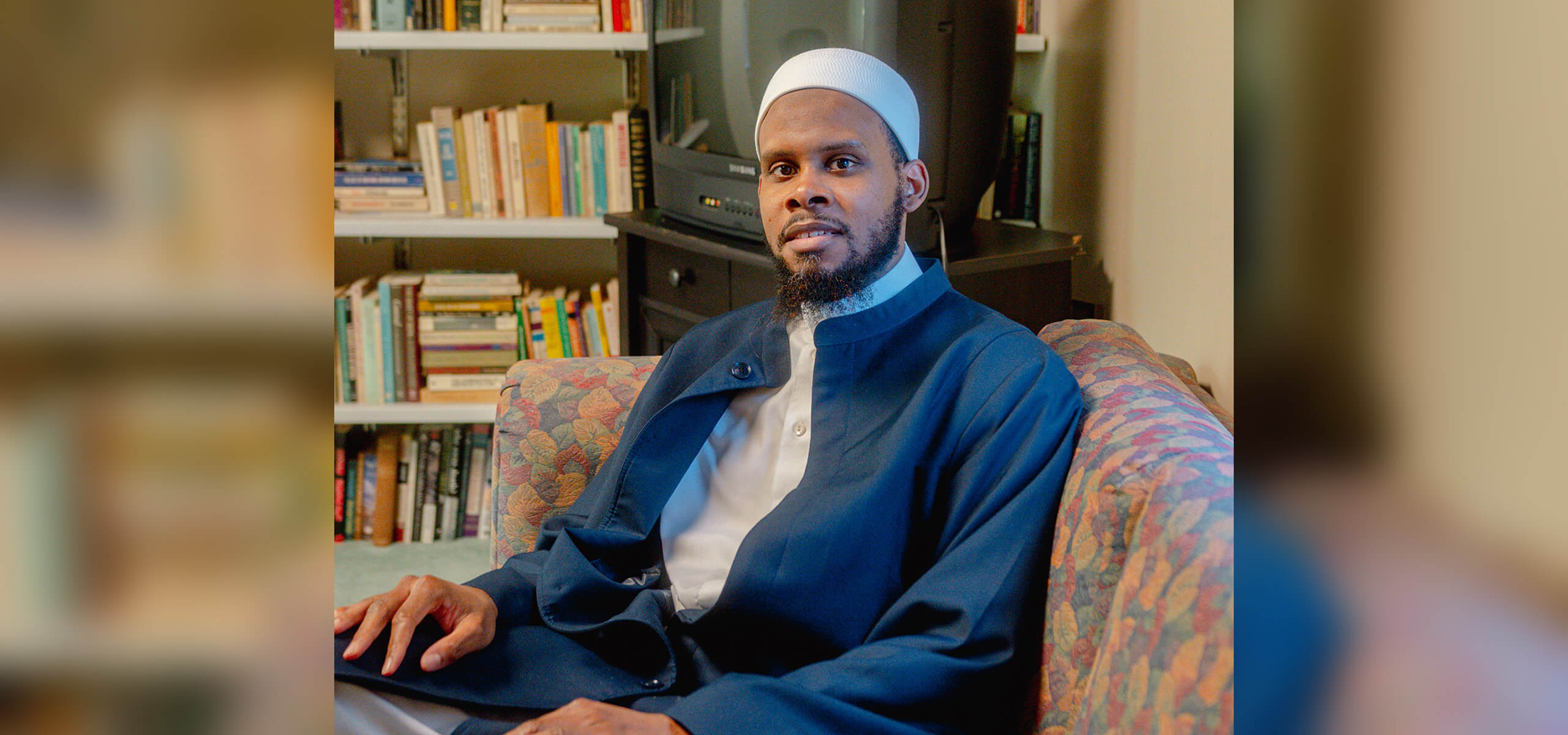
There is a difference between a chaplain and a religious leader. Tariq Ameer hopes more students will understand his new role at Lehigh. While he calls religious study his passion, Ameer’s calling is chaplaincy.
With a background in hospital and prison chaplaincy, Ameer is not only Lehigh’s first full-time director of Muslim student life, he is also called to serve the greater campus community.
“Because of the nature of chaplaincy itself, I have the capacity to help and assist other people whether they are Muslim or not,” says Ameer. “I am able to ask questions that allow for you to speak about what you are going through. As a hospital chaplain, working with so many people that were not Muslim allowed me to be flexible to the needs of whoever the person is.”
He was born to Muslim parents and always identified as Muslim, but he didn’t feel connected to the religion until college, when he began to study with a teacher who inspired him to travel overseas to study Islam. It ignited something in Ameer that his accounting classes didn’t. But there was one problem: His grandfather, who had funded his undergraduate education, told him he would only pay for four years.
So Ameer finished his accounting degree and entered the corporate world. At the same time, he began working at the Muslim Education and Converts Center of America in New York providing Islamic education and support.
“Before religion became important to me, I had dreams of making a lot of money as a CEO. But by the time I got into the corporate world, I knew it was not what I wanted to do,” Ameer recalls. “I did what I had to do to keep my job. But once I transitioned to a chaplaincy role, my passion came out.”
Mission at Lehigh
Having a full-time director of Muslim student life gives more students advocacy, representation, and the tools to navigate their religion as adults in America.
“From an Islamic standpoint, there are certain tenets of faith — certain practices — that are not as regularly known through the greater community of America. One of the primary principles in Islam is the five daily prayers. This can be difficult because we don't have a society that makes it easy to pray. If you are in a meeting and the meeting isn’t going to end [before your prayer time], you need to make a moral decision.”
Ameer’s experience as a chaplain has taught him how to advise on such matters, recognizing that there is no “generic cookie-cutter answer.”
“Just as every Christian does not practice in the exact same way, the same is true for Muslims,” he says. “I've come to know every person's situation is a unique situation. I won't give the same advice to someone who is a cultural Muslim versus someone who is a very conservative, devout Muslim.”
Employing the listening skills he honed in hospital and prison chaplaincy allows Ameer to advise and support regardless of the person, religion, or beliefs.
He recalls, “I've been in situations where stopping and listening for an additional five minutes completely changed what I was going to say to them. Once I learn more about them personally, I realize what I was going to say would not have been the right thing for that individual person.”
In a world of differing faiths and polarized politics, Ameer’s advice to students is to stay grounded first in their own faith. “Keep that with you as your basis, but open that up to be with people as people.”
He maintains that most people are not looking for a "religious answer” but instead for connection.
“In engaging with others who might not share your religious perspective, it's important to be with them as [people] and [...] in whatever capacity they need.”

